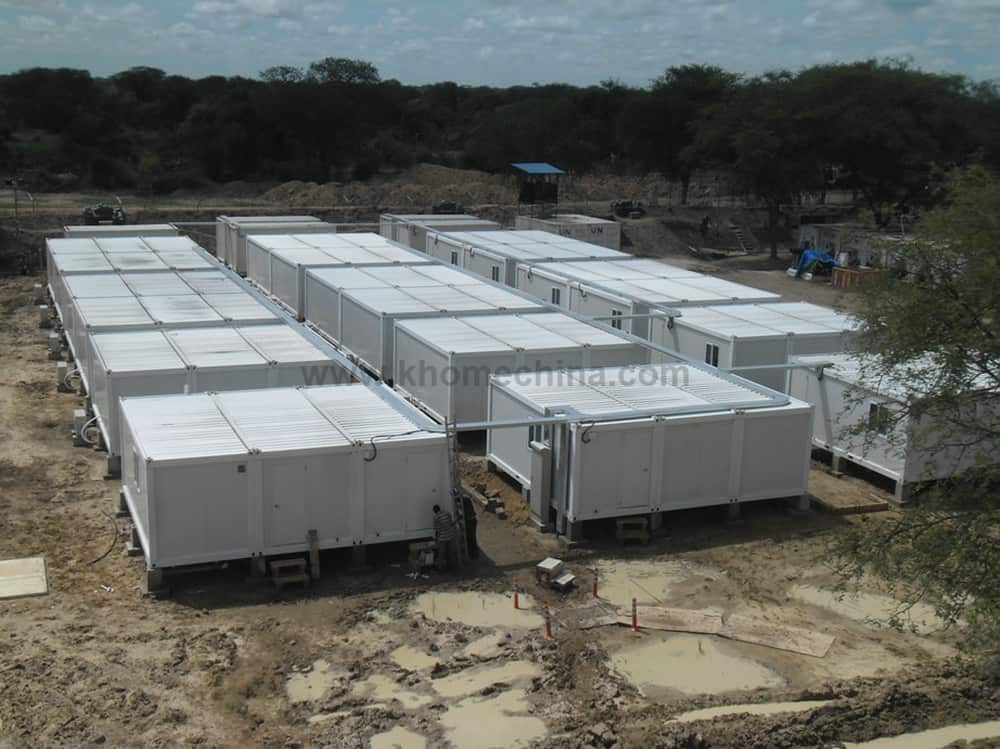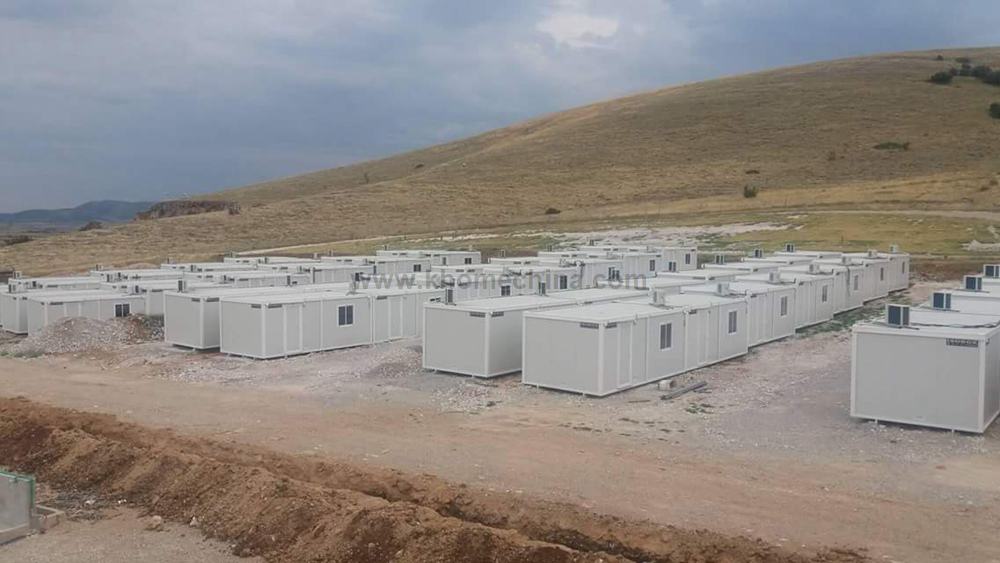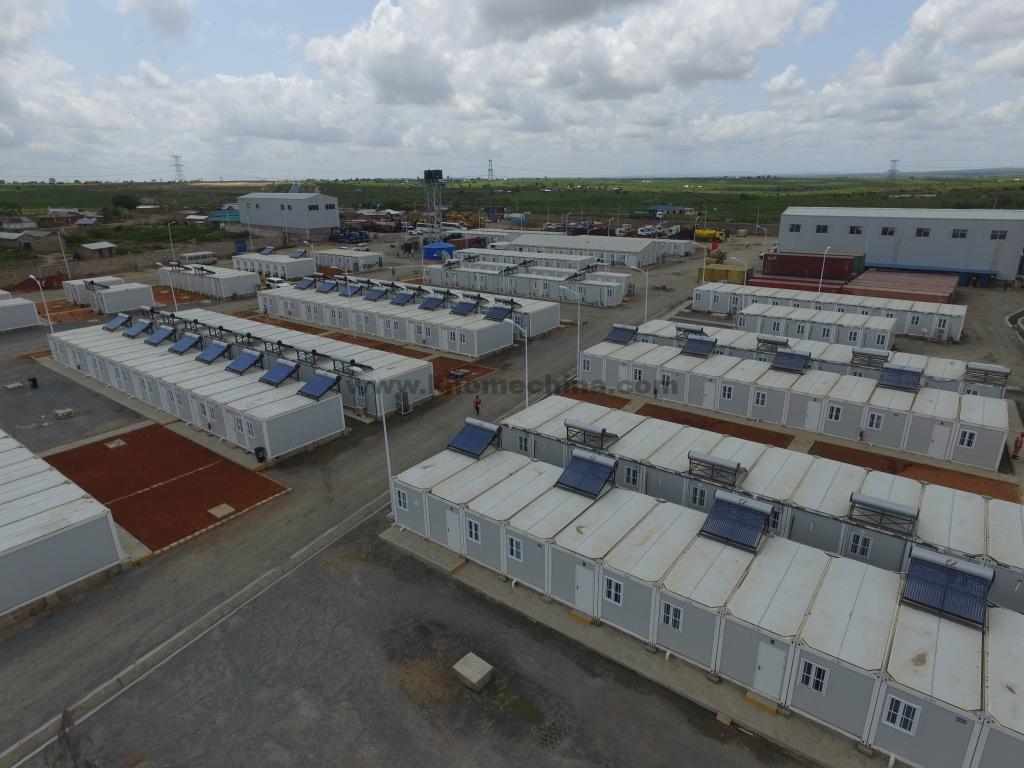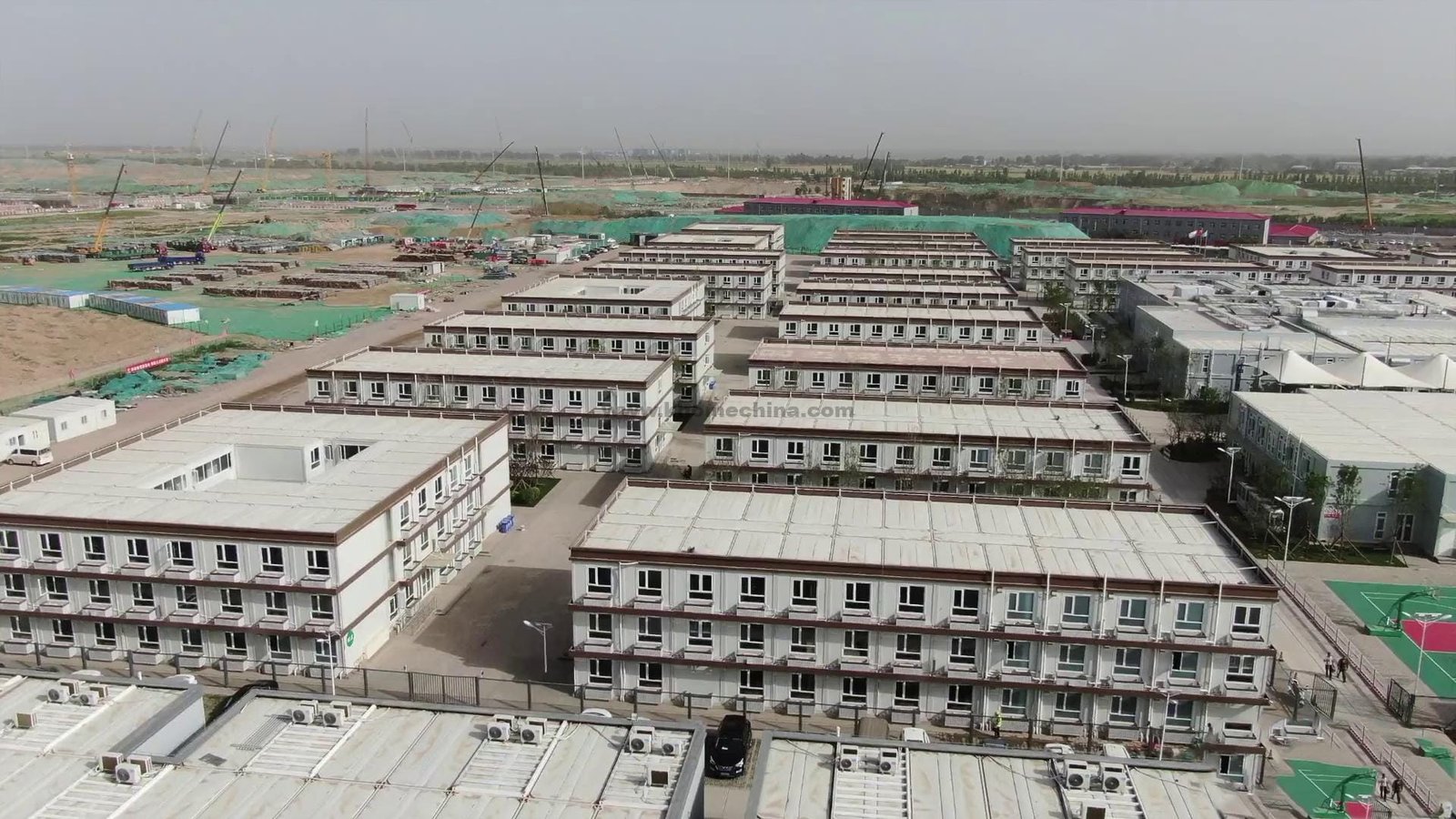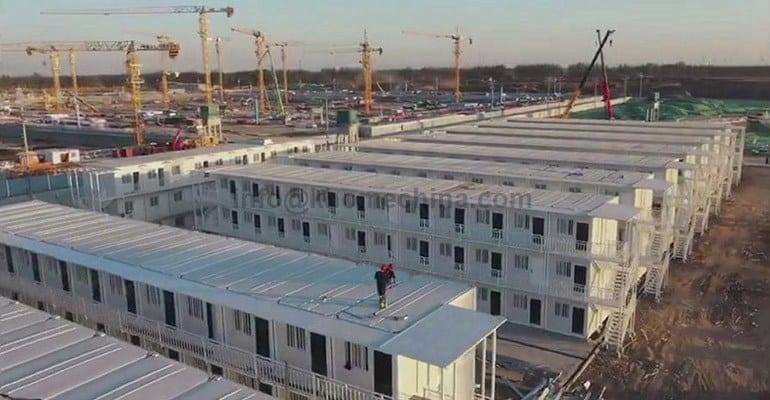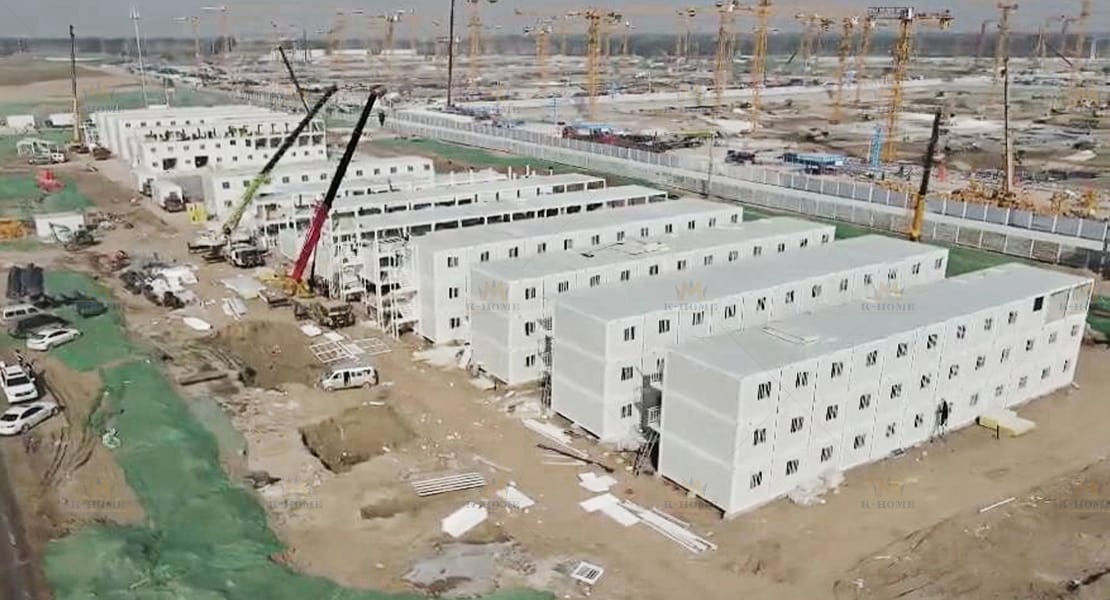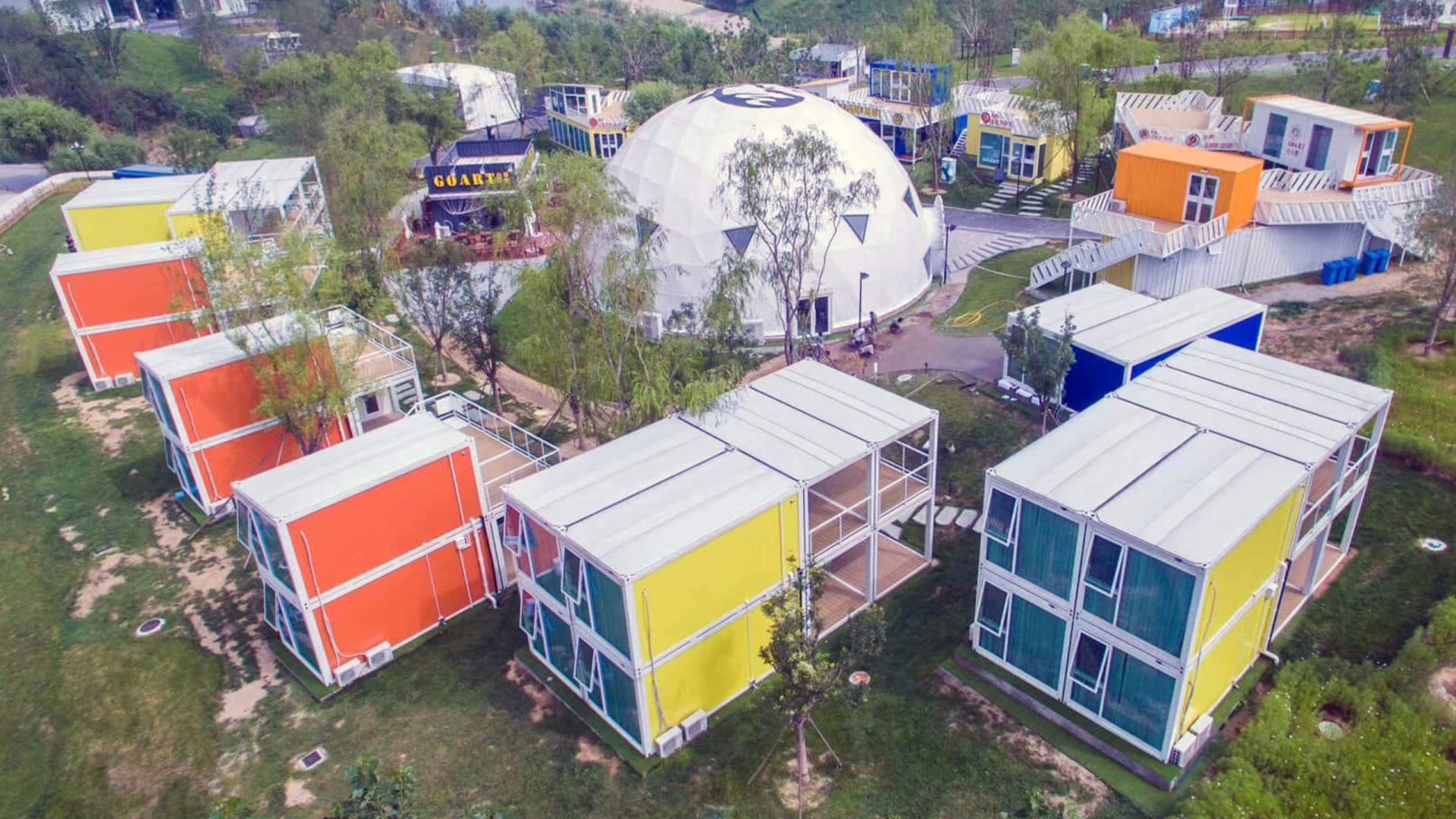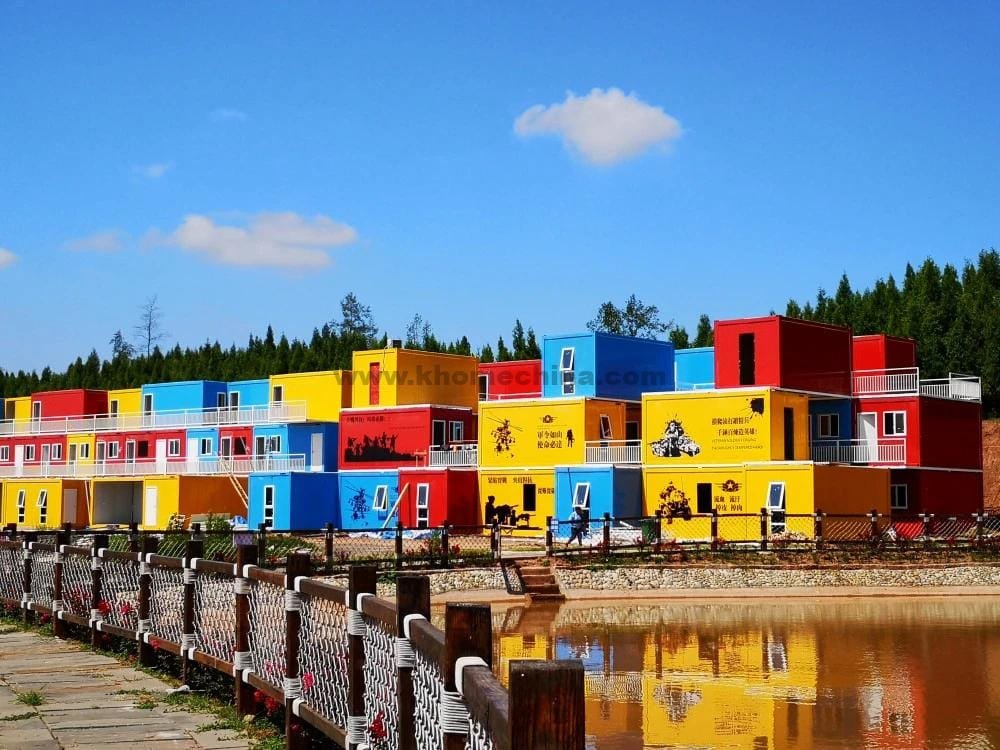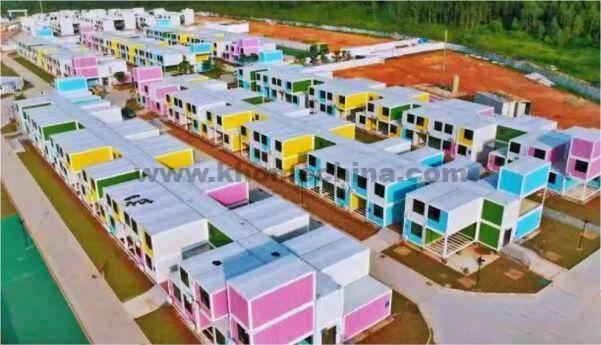Prefab container Town
Container Camp / Container City / Container Village / Tiny Town
Container Town
Container Town, utilizing shipping containers as the primary building material, is a specialized area or town that often comprises a large, multifunctional community. It serves diverse purposes such as residential, commercial, cultural, and more. Container Town is also suitable for emergency responses (e.g., temporary housing after natural disasters), low-cost housing projects, and creative industries. Globally recognized as an innovative and sustainable construction form, its modular design allows for efficient on-site assembly, standardization, and flexibility in design and function, catering to various needs and site conditions. Its mobility, dismantlability, and adaptability promote resource recycling and sustainable development.
Container Town finds extensive applications in various settings. For residential use, its low cost makes it suitable for low-income housing projects or temporary accommodation in land-scarce areas. Commercially, it transforms shopping malls, restaurants, and cafes into unique urban landmarks. Culturally, through decoration, prefab containers become platforms for cultural exchange and artistic creation, attracting artists and cultural institutions. Moreover, in times of emergency, Container Town serves as a temporary shelter, providing crucial relief and resettlement services.
Applications of Container Town
By utilizing prefabricated modular containers as building units, the container town offers a sustainable, flexible, and cost-effective solution for various needs. Its diverse applications, from housing to commercial and cultural projects, enhance the resilience and vibrancy of communities. As we face the challenges of rapidly limited resources, container town presents a viable option for creating sustainable and livable space.
Container Town for Temporary Living
Container towns offer a cost-effective and temporary housing solution in residential applications, especially in areas with limited land resources or temporary housing needs. Their modular nature enables rapid construction of affordable housing, providing a sustainable solution to housing crises. Used as building blocks, containers reduce construction costs and ensure quick turnaround times. Their ready availability and easy transportation allow for rapid assembly into fully functional living units, crucial for construction sites requiring prompt worker accommodation. This prefabrication approach in factories minimizes on-site installation time and costs, maximizing economic efficiency.
Container buildings exhibit flexibility in design and expansion, easily customized to meet specific requirements. They can be stacked or arranged in various configurations to maximize space utilization and foster a sense of community. Their modular nature enables swift adaptation to diverse terrains and environments, from mountains to deserts and seashores. With thoughtful design, these buildings offer comfortable living spaces complete with facilities such as beds, storage cabinets, and bathrooms, fulfilling basic living needs while ensuring structural robustness against wind and earthquakes. They also accommodate additional functions like offices and medical facilities, ensuring comfortable living space.
Container Town for Commercial Applications
In the commercial sphere, container towns bring retail spaces like malls, restaurants, and cafes together in a personalized and appealing way. Their distinctive style, often with colorful walls or steel frameworks, not only draws in customers but also becomes a new urban landmark. These towns also foster cultural exchange and artistic creation, providing spaces for exhibitions, performances, and workshops. This fusion of commercial, cultural, and artistic elements creates a memorable experience for locals and tourists.
Container towns are also emerging as popular destinations in tourist attractions and resorts. These towns offer a comprehensive range of services, including accommodation, dining, and shopping, all within a unique and convenient setting. Their modular design allows for quick and cost-effective development, making them an ideal choice for expanding facilities in a sustainable and environmentally responsible manner.
Container Town For Emergency Application
Container towns play a crucial role in emergency response. Their modular design allows for rapid deployment and disassembly, making them ideal for temporary facilities like shelters, mobile clinics, and warehouses. These containers serve as quickly erected structures, providing essential housing, medical services, and other functions for affected individuals.
The standardized and reusable nature of containers reduces costs and improves rescue efficiency in emergency relief efforts. Furthermore, their modular design enables scalability, allowing for quick expansion or downsizing based on evolving needs. This flexibility, along with their durability and recyclability, promotes sustainability in disaster relief operations.
Advantages of Container Town
In the ever-evolving landscape of urban development, container towns have emerged as novel and innovative solutions with numerous advantages. From sustainability to versatility, cost-effectiveness, and more, these modular, portable structures are revolutionizing the way we build and live.
First of all, the sustainability of container towns is undeniable. K-HOME container units only need to be bolted together during installation, and they can be put into use after installation, without the need for secondary decoration, reducing pollution to the on-site environment. In addition, the prefabricated container houses are detachable and movable, and steel is a recyclable raw material, which means that these container houses can be reused or recycled. This not only saves energy and resources but also helps to create a greener and more environmentally friendly urban environment.
The versatility of container towns is indeed outstanding. With standardized sizes and modular designs, containers can be easily combined and rearranged to create diverse structures for various purposes. Whether it is a residential area, office space, or retail store, container towns can be flexibly adapted to any specific need. This versatility also allows for rapid deployment and easy expansion, making container towns an ideal choice for temporary buildings or emergency housing.
Container towns are highly cost-effective. Compared with traditional construction methods, container buildings are much less expensive. Using prefabricated containers as the base structure reduces the need for extensive labor and material costs, resulting in a more economical solution. This cost-effectiveness is particularly beneficial for low-cost housing projects and temporary construction, where budget constraints are a major consideration.
In addition to these key advantages, container towns offer many other benefits. Their modular design can be easily customized and personalized, allowing residents to create unique living spaces that reflect their personal tastes and needs. Additionally, the durability and resilience of containers ensure that container towns can withstand adverse weather conditions and natural disasters, providing safe and secure shelter for their residents.
In summary, container towns represent a forward-looking and sustainable approach to urban development. Their modular, portable design, versatility, cost-effectiveness, and many other advantages make them ideal for a wide range of applications. As we continue to explore new ways to live in harmony with the environment, container towns offer a promising solution for a greener, more resilient, and more cost-effective urban future.
SEND A MESSAGE



